Rooted at the core of the St. Thomas Basilian educational model is the commitment to transforming the minds and hearts of the Eagle campus community through advocacy and social justice education.
Theology faculty member Danny Hernandez ‘08 is continuing that legacy of service, engaging his senior scholars through activism, volunteerism, and community-based learning, even in the response to the coronavirus outbreak.
During the fall semester, Hernandez organized and executed a series of student-led participations at Loaves & Fishes Soup Kitchen, a program run by Magnificat Houses, a Christian assistance ministry. He was searching for a service component to support discussion topics relating to poverty, homelessness, and human trafficking.
Hernandez’s multi-tier goals relating to the dialogue were to raise awareness through education, show solidarity with those who are in particular need, and take immediate actions. Affecting short-term relief may fuel long-term solutions that address systemic causes.
“Students can be presented with a high volume of facts and textbook examples of poverty but what they experience first hand is much more powerful,” Hernandez says. “I wanted that practical component outside the classroom which is increasingly difficult given the pandemic restrictions.”
Hernandez developed a strategy incorporating social distancing with the current health and safety protocols.
Students quickly discovered that in the shadows of Minute Maid Park, within extensive urban redevelopment and a burgeoning number of high-rise residences is a view on the streets telling a different story. The unsheltered population is drawn daily to Loaves & Fishes desiring basic needs or a fast lunch. Eagle volunteers worked four-hour shifts to prepare and distribute 300 individually boxed meals.
“Life goes on through COVID-19 and so does poverty,” Hernandez says. “In many ways it becomes more pronounced which is why this kind of effort is so important and must continue. The students accepted the involvement with no judgement. The mission was to feed the hungry, no questions asked. You come. We will feed you regardless of the circumstances.”
Giving without seeking reward.
Embracing a personal obligation and right of each individual, based on talents and gifts, to make a contribution to the common good.
And at the same time, promoting a culture of social justice that can flourish when society removes barriers so that each person can contribute fully to the betterment of that society.
“The feedback from the students was phenomenal,” Hernandez says. “Their words were ‘rewarding’ and ‘eye-opening.’ My intent is that the impact will carry forward and encourage the students to continue this kind of work.”
The Social Justice senior curriculum is built around the Seven Themes of Catholic Social Teaching – Life and Dignity of the Human Person; Call to Family, Community, and Participation; Rights and Responsibilities; Option for the Poor and Vulnerable; Dignity of Work and the Rights of Workers; Solidarity; and Care of God’s Creation.
Hernandez hopes the October outreach will provide a renewed relationship between Campus Ministry and Fishes & Loaves, a connection he first made his sophomore year as a St. Thomas student. Since that introduction, Hernandez has seized the responsibility that institutions of higher education have to better the human condition of all people. In recent years he has collaborated with Eagle fathers Rafael Garcia and Ed Cordes as the driving forces in leading St. Thomas students representing diverse religious backgrounds to aid the under-served in Honduras.
“For me, service is such an important element in building young men of good character,” Hernandez says. “This is proactive goodness in (the Basilian credo) Teach Me Goodness, Discipline, and Knowledge. Applying that context outside the classroom is essential. At the end of the day, these students are seeking opportunities to give back, to do good in their communities. The best I can do as a teacher is help provide that chance.”
Catholic. Basilian. Teaching Goodness, Discipline and Knowledge since 1900.

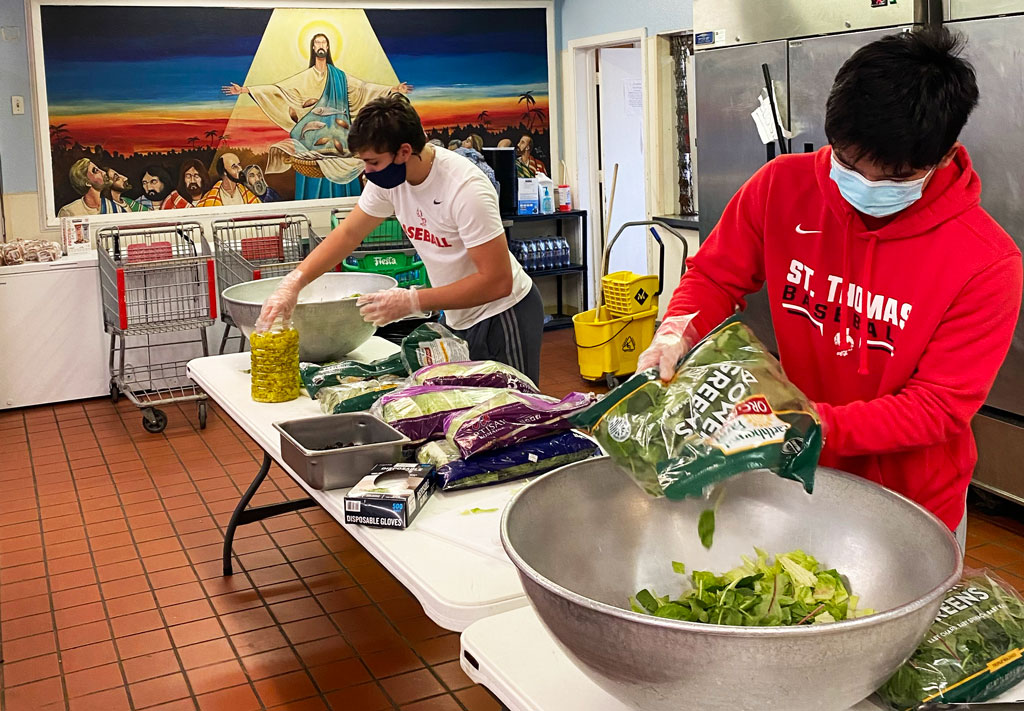

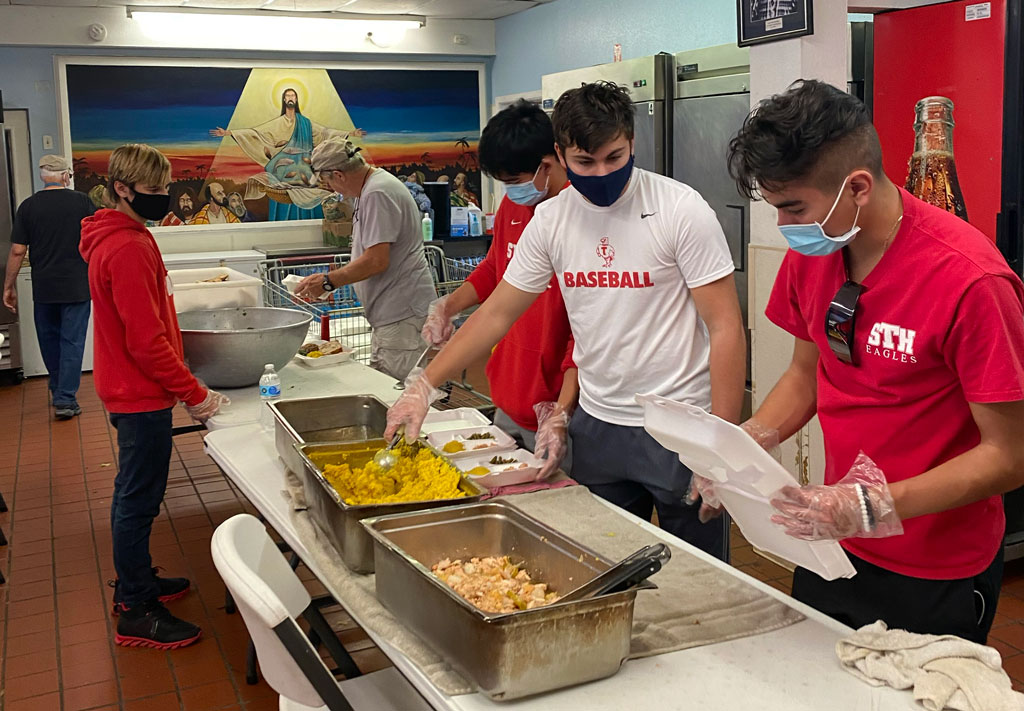
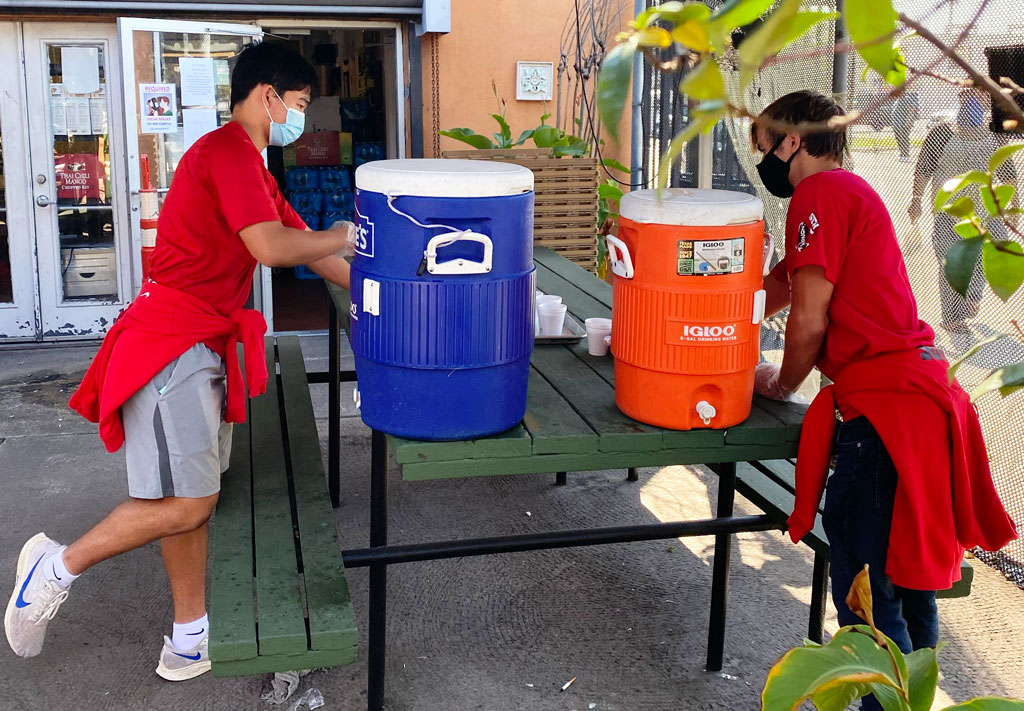
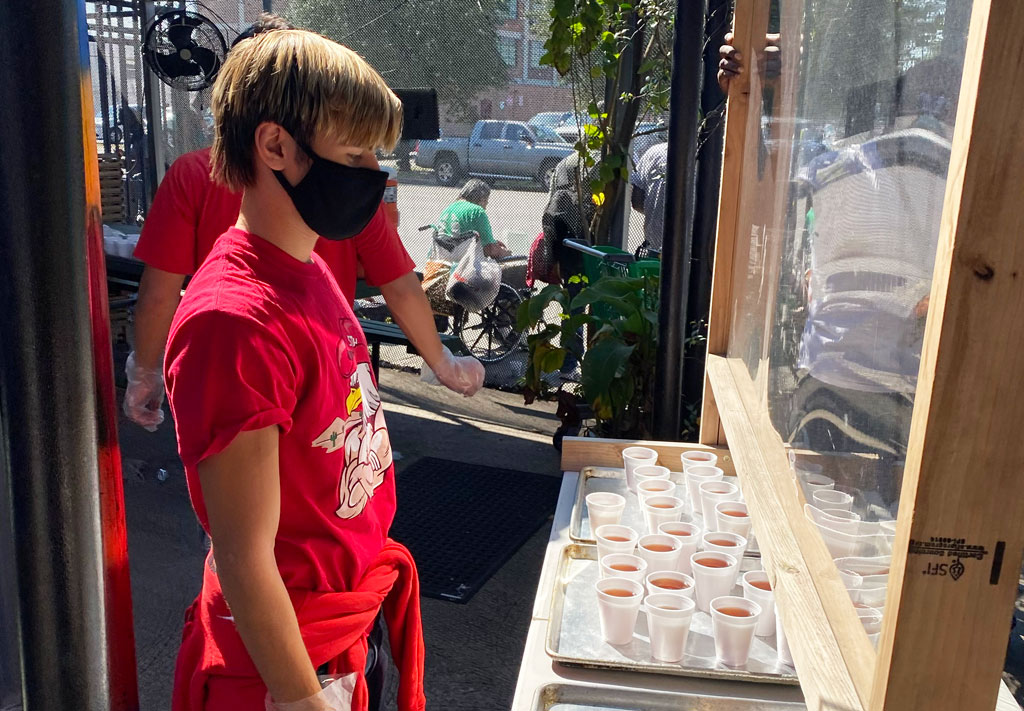
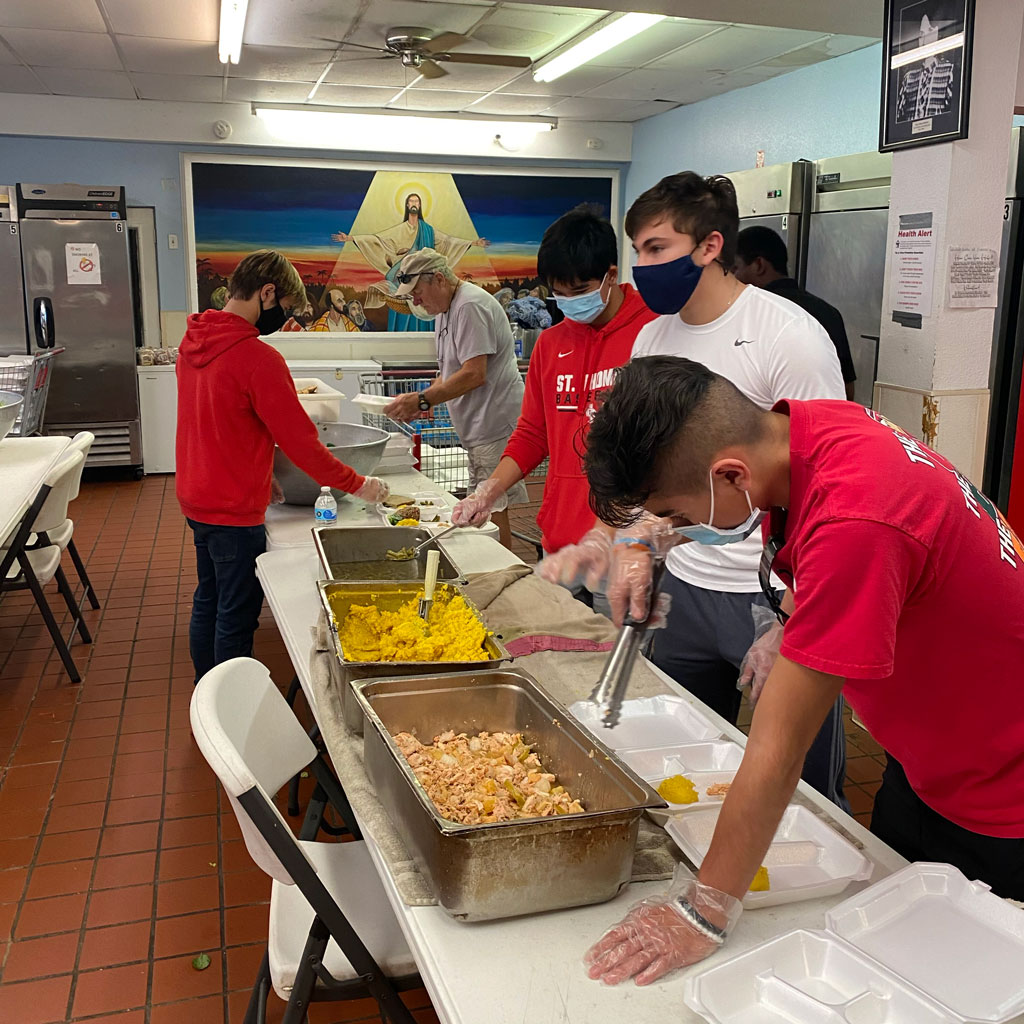
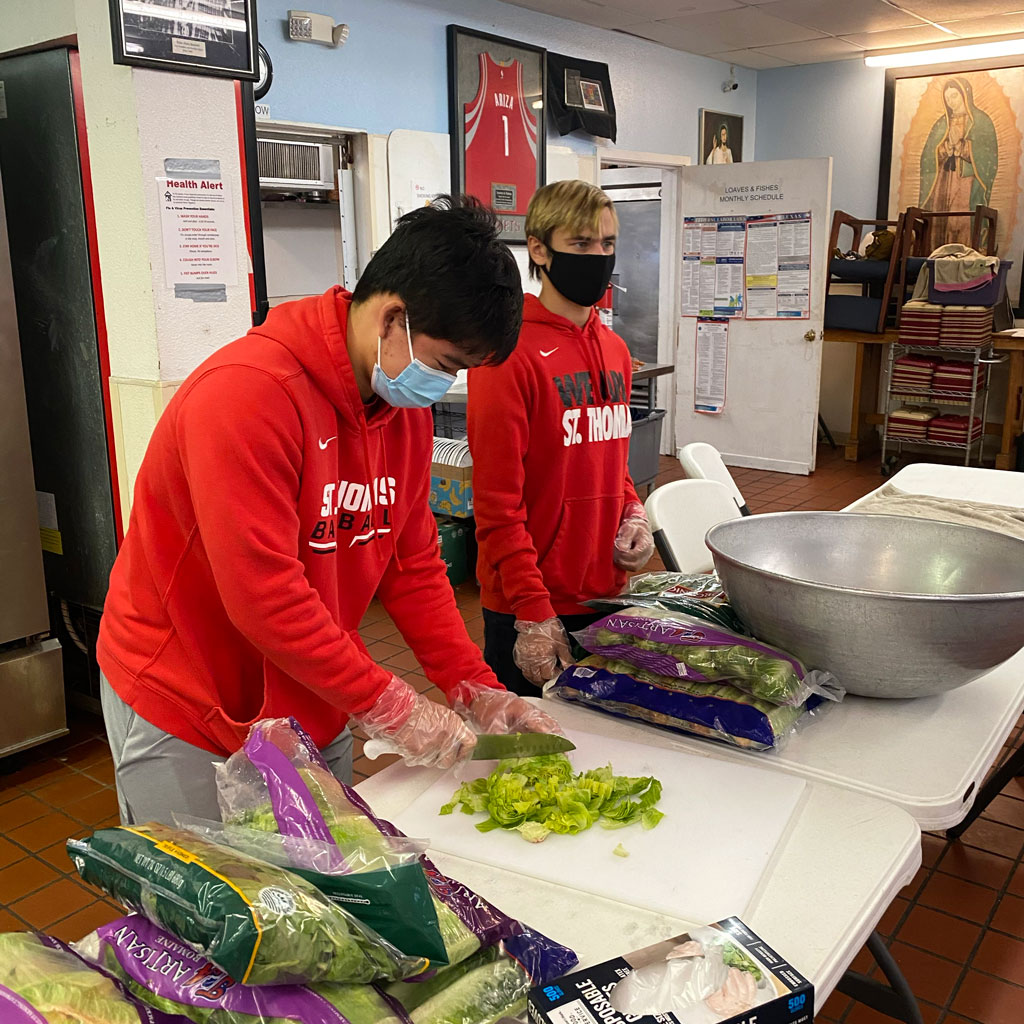
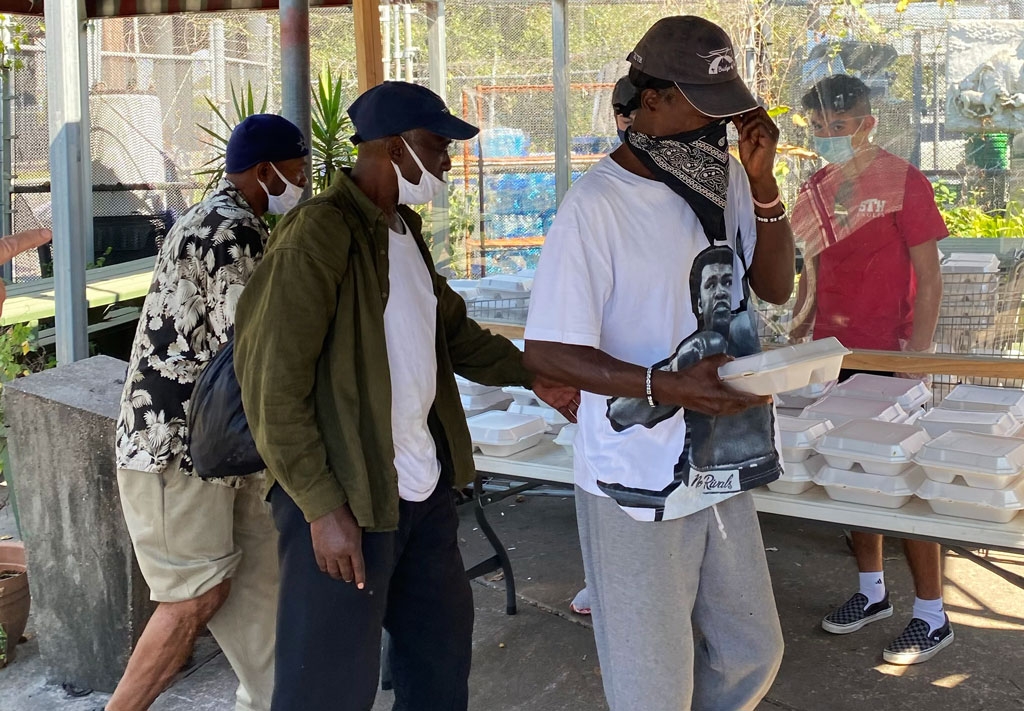
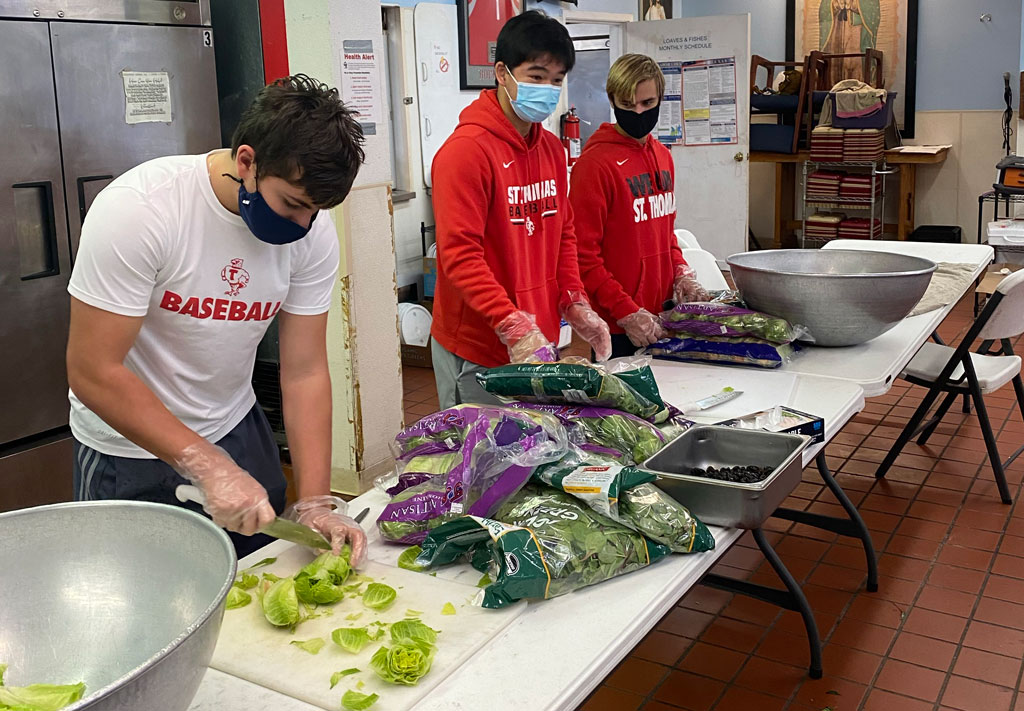
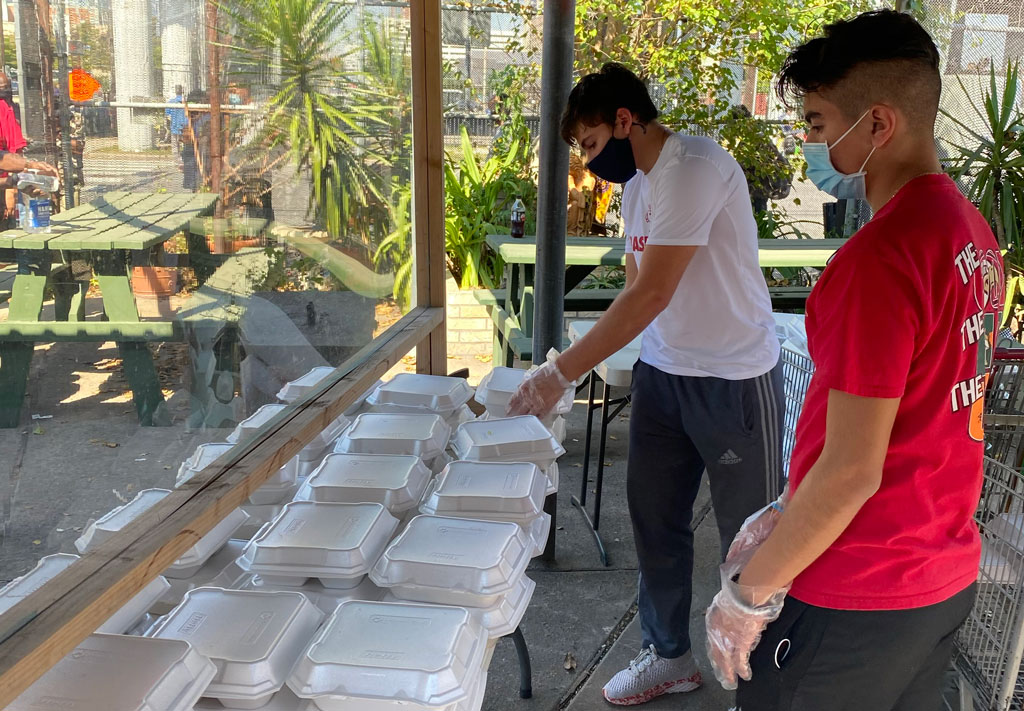
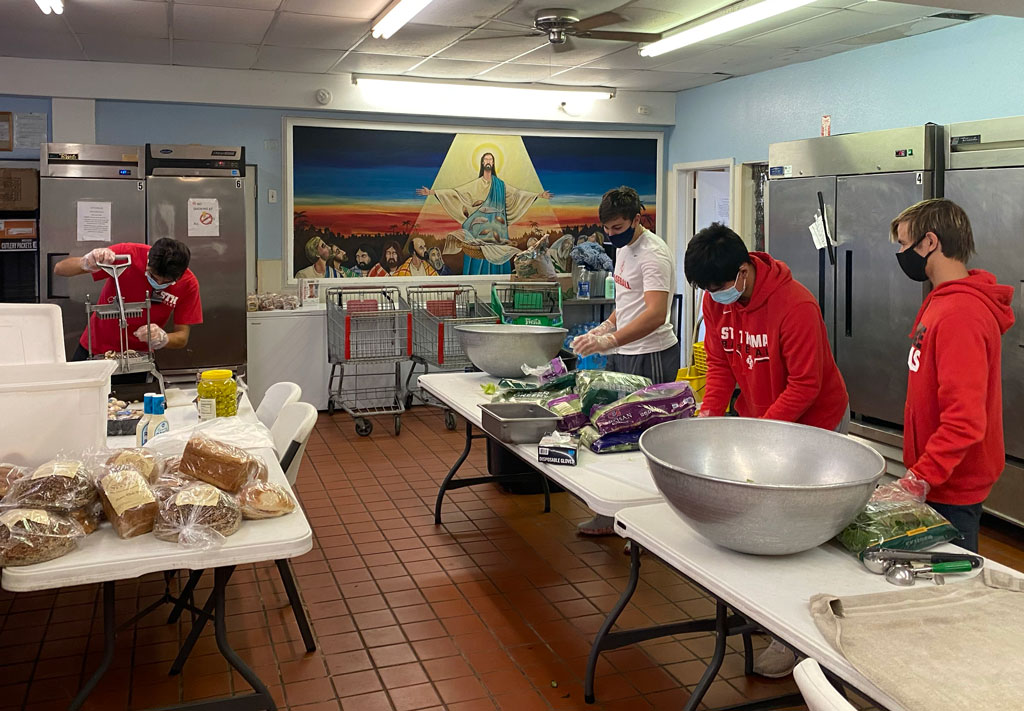
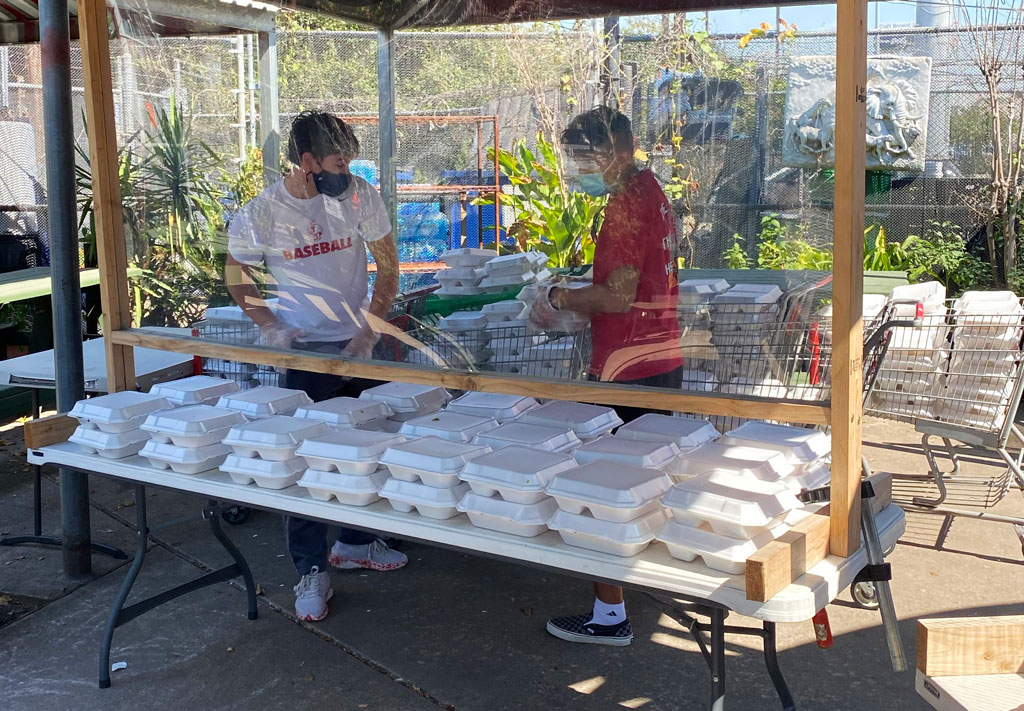
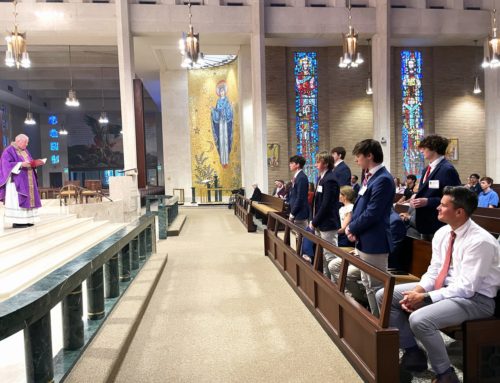
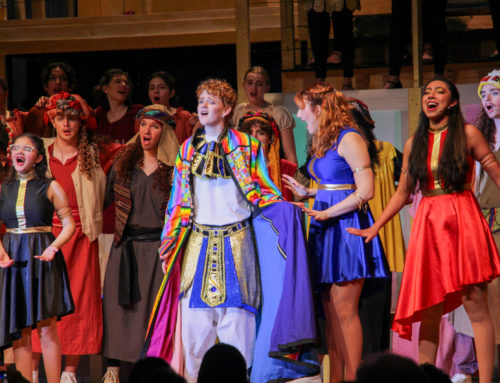
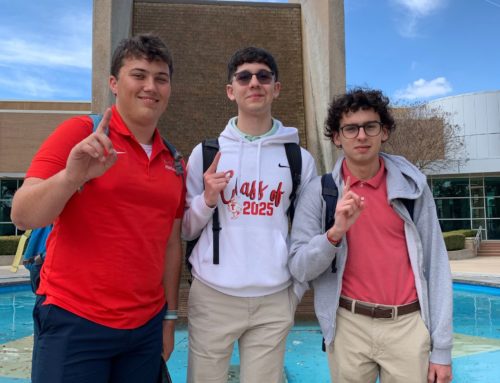
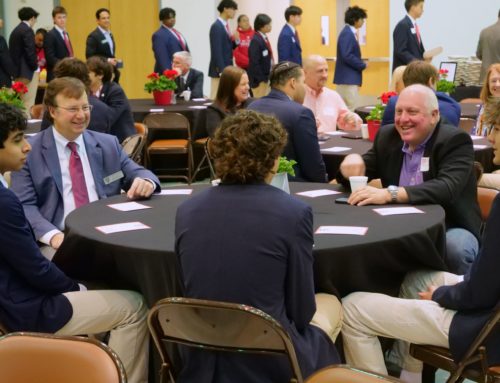
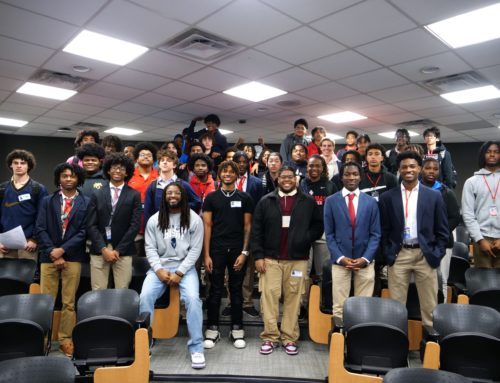


Leave A Comment